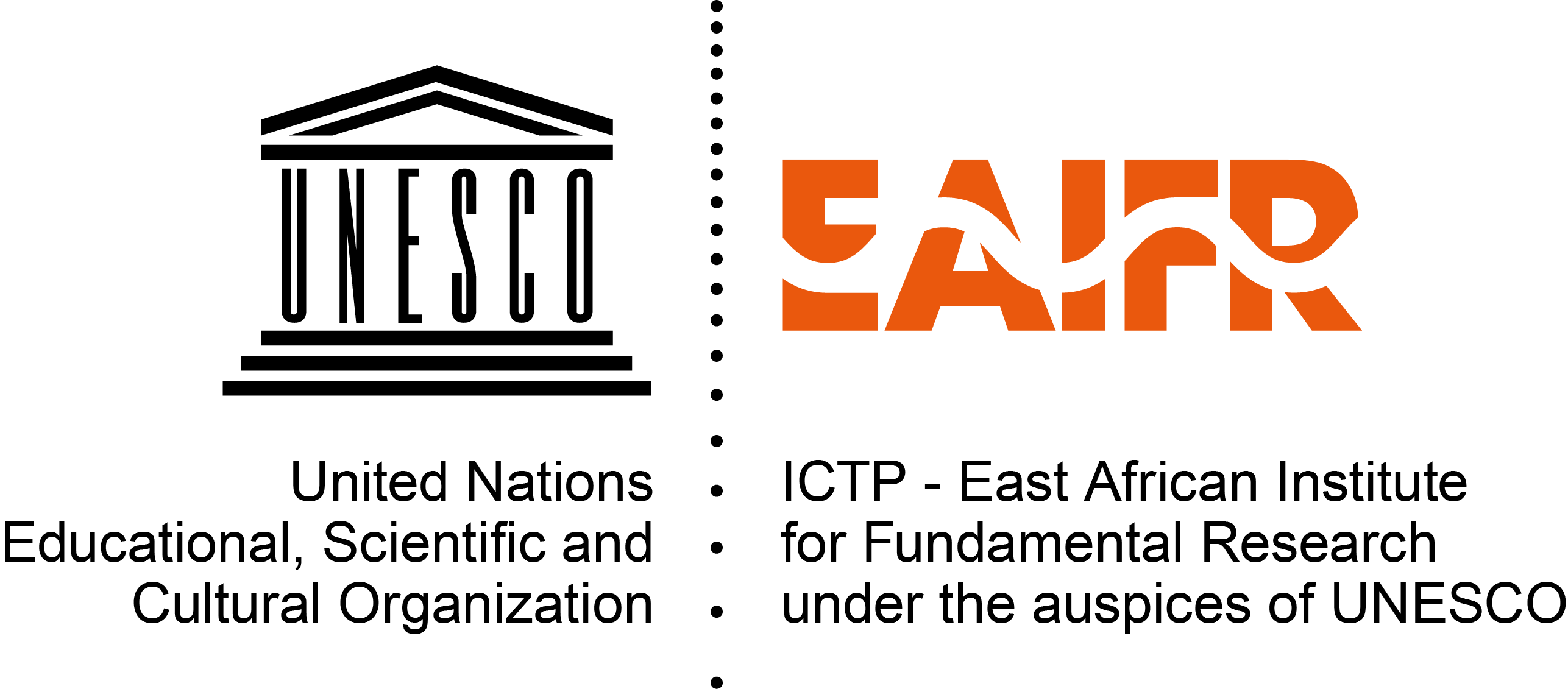ICTP-East African Institute for Fundamental Research
KIST2 Building CST
Nyarugenge Campus
University of Rwanda
Kigali, Rwanda
School on Describing and Analyzing Solar Data for a better prediction of Space Weather
The school on space weather prediction is aimed at strengthening capacity building for space weather research and education in the Eastern African region.
Introduction
The school on space weather prediction is aimed at strengthening capacity building for space weather research and education in the Eastern African region. Space weather refers to physical processes that originate from the Sun, propagate in the interplanetary space to produce disturbances in the near earth’s environment including the magnetosphere, ionosphere. Disturbances caused by the solar-terrestrial interaction can affect the performance and reliability of space-borne and ground-based technological system and even directly affect human lives.
Solar activity and driven disturbances are very dynamic and highly unpredictable. Therefore, there is need to better understand and improve the ability to predict space weather drivers including solar, geomagnetic and ionospheric storms. Currently, the ability to monitor and predict space weather mostly relies on data provided by multiple space-borne and ground based instruments. Therefore, a well description and analysis of solar-terrestrial data can lead to a better understanding and prediction of space weather.
The school on describing and analysing solar data will bring together students and scientists mainly from the East African countries (Kenya, Uganda, Rwanda and Tanzania). In this school, lectures and practicals on data analysis will be provided by space weather experts from the region and from international renown research institutions. The scientific programme of the school will be composed of two main themes: the first part will be an overview of the basic space physics concepts related to solar-terrestrial interaction. The second part will be made by tutorials and exercises on data analysis using various modeling tools. Participants will be given instructions beforehand to install the required tools that will be needed during practices on their computers. The workshop aims at forming a regional team focused on increasing capacity building for space weather prediction, instrumentation, education and research in their home institutions.
You can download the poster here.
Objectives
Major objectives of the school will be to train scientists and researchers mostly from the East African region on the aspects covering the description and analysis of solar data for a better prediction of space weather using existing and real time data provided by both ground-based and space-borne instruments. By the end of the school, the following is expected to be achieved by participants:
- Ability to describe data and related factors necessary for space weather predictions.
- Develop competences of using existing data and tools to predict space weather.
- Usage of obtained results for sustainable development.
- Establish a networking for collaborative space weather researchers in East Africa.
Scientific Programme
The scientific programme shall be communicated later and will be established based on the following main topics:
- Sun-Earth connection and Space weather.
- Space Weather prediction and forecasting.
- Solar active phenomena and their implication to space weather.
- Space environment effects on satellite systems.
- Earth’s magnetosphere, geomagnetic storms and related effects.
- Ionospheric Irregularities.
- GNSS and Communication Systems.
International Advisory Committee
- Prof. Nat Gopalswamy - NASA/ GSFC, U.S.A.
- Prof. Patricia Doherty, ISR-Boston College, U.S.A.
- Prof. Christine Amory Mazaudie-Sorbone University LPP Polytechnique, France.
- Prof. Babatunde Rabiu, NASRDA, Nigeria.
- Dr. John Bosco Habarulema, SANSA, South Africa.
- Dr. Daniel Okoh , NASRDA, Nigeria.
Local Organizing Committee
- Assoc. Prof. Jean Uwamahoro (Chair): University of Rwanda
- Dr. Pheneas Nkundabakura, University of Rwanda
- Dr. Jean Claude Uwamahoro, University of Rwanda
- Ms Cynthia Ange UMUHIRE, University of Rwanda
- Mr. Theogene Ndacyayiseng, University of Rwanda
Venue
Einstein Block (Former KIST2 Building), College of Science and Technology, University of Rwanda, Nyarugenge Campus.
Application
The application timeline will be communicated soon
Participations
Participants to the workshop will be mostly from the African continent and in particular, target is for postgraduate students from the East African Community (EAC) countries.
Confirmed sponsorship of the event
- The Scientific Committee on Solar Terrestrial Physics (SCOSTEP)
- The East African Institute of Fundamental Research (EAIFR)
- The International Committee on Global Navigation Satellite Systems (ICG)
Group



